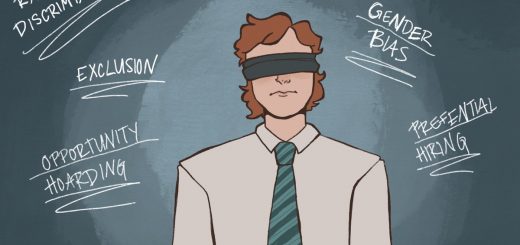The Supreme Court of Uganda can reduce or end backlog by adopting discretionary review.

The law provides that an Appeal from the Court of Appeals shall lie to the Supreme Court. Nowhere does it state that the Supreme Court must hear the appeal on its merits. The Supreme Court can reject an Appeal summarily thereby affirming the decision of the lower court. The Supreme Court does not need to treat the lower courts as babies that need constant supervision because in most cases the decisions of the lower courts are based on sound reasoning and some of the lower court judges have more ability than many of the Justices of the Supreme Court.
Summary dismissal is an established principle of the law that allows court to dismiss summarily any suit that is frivolous or an abuse of the court process or doesn’t have a reasonable likelihood of success. The Supreme Court can deny review to all appellants who fall in these categories by denying them an oral hearing. In a court of first instance a suit can be dismissed summarily on a point of law or for lacking merit. Why does the supreme Court have to hear an appeal that lacks merit either because the law on the issue is settled or because on the facts the decision of the lower court is unimpeachable. For certain lower court judges and certain panels of the Court of Appeals a very large majority of the decisions are based on sound reasoning and therefore the Supreme Court has nothing useful to add. However in the current system the Supreme Court has to hold a hearing regardless of the quality of the reasoning of the lower court or the weaknesses of the appeal before it. In this way, court wastes time on inconsequential and often bogus appeals that are filed for no other reason except to deny the successful party benefits of the decision of court
Anyone who wants the Supreme Court to hear every appeal does not want to admit that more than eighty percent of the appeals to the Supreme Court lack merit and five percent are simply frivolous and an abuse of the court proceess. It is the nature of Ugandan litigants that they don’t accept loss and will continue to litigate any issue as long as someone is willing to listen to their endless whinning over a meritless argument. If resources such as judicial officers assigned to the Justices of the Supreme Court were allocated to evaluating and assessing the appeals to identify those that qualify for summary dismissal appellant courts would reduce the problem of case backlog. Imagine a situation whereby every month 600 appeals that lack merit are dismissed and valuable time is devoted to meritorious appeals containing real errors by the lower court.
Appeals in Uganda are treated as an opportunity to delay justice and oppress the winning party. The losing party calculates that the appellate process might take more than two decades and gamble’s that within that time he or she will enjoy the land or the money he or she would have paid as the winning party endures a long and torturous wait. In Uganda v Atugonza Francis Constitutional Reference No. 31 of 2010, the Constitutional Court admitted that “Most references (Constitutional References) tend to provide an escape from justice by indefinitely staying and delaying the proceedings, thus clogging the system”. The danger of courts allowing themselves to be used as a conduit for delay and frustration of Justice is obvious. It undermines the rule of law and the Goodwill of the court upon which court depends for its legitimacy. Where courts fail to deliver justice the public condones attacks on the courts by the political branches which always want to deceptively present themselves as the protector of peoples’ liberty and property from a corrupt and inefficient judiciary.
Principles need time to be tested
The rule of law requires that the law creates stability, predictability and certainty. For this reason it is preferable to create increment changes to the law rather than sudden jolts to the law in order to give the public time to adjust. There must be stability of the law to avoid frequent jolts to the status quo which would lead to confusion. Citizens should be able to arrange their affairs with the expectation that the legal regime shall remain the same for the foreseeable future. This creates certainty which is important for the rule of law. There is real benefit to allowing issues to be litigated and articulated by practitioners in the lower courts which often analyse and refine principles and rules before the higher courts weigh in on the final decision. The importance of having different practitioners participate in refining rules can not be underestimated because it allows for differing views on the issue. When you have a diversity of opinions then it becomes easier to choose and refine principles of law. The appellant courts do not have a monopoly on good ideas and innovation and are often constrained by political considerations and the need for consensus. For this reason it is important to let cases play out in the lower courts instead of intervening before the lower courts have had their say on what the principle in issue should be and the allowable exceptions.
Read More
- Ideal Amendments that should be included in the Magistrates Courts Amendment Bill 2026 of Uganda
- President Yoweri Kaguta Tibihaburwa Museveni is a minority President voted by only 7,946,772 (36.7%) out of 21,649,608 eligible Ugandan voters in the 2026 Presidential Elections
- Four years of IGG Beti Kamya drowned the Inspectorate of Government (IG) deeper into oblivion and irrelevancy but it Can be redeemed
- The Proposal to Make Magistrates Grade Ones Chief Magistrates is an efficient use of resources that will improve service delivery in Uganda
- If Magistrates Courts in Uganda are less competent and more prone to corruption does it mean that the poor deserve inferior justice to the rich.


